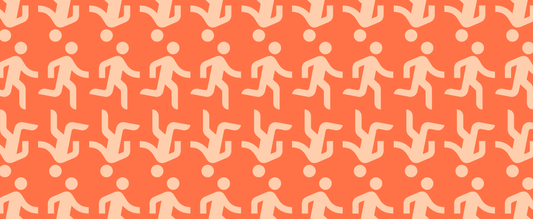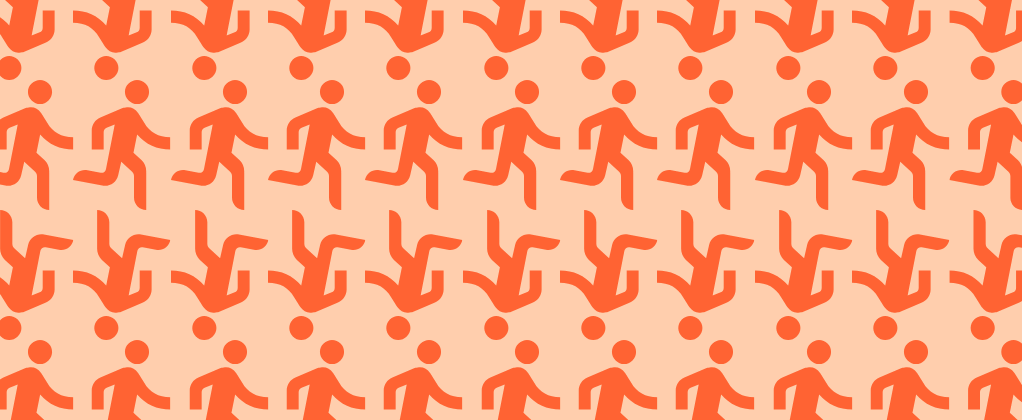Footballers with ADHD on Their Side
Read Time 4.5 mins
In the world of professional football, the challenges faced by athletes are immense. The pressure to perform, the intense training schedules, and the constant scrutiny can be overwhelming.
Some players face additional challenges due to having ADHD, which some may see as a barrier to success. However, many footballers have not only managed to navigate their careers successfully but have also thrived, showcasing their resilience and determination.
Among these inspiring individuals are Claire Rafferty, Jermaine Pennant, Emma Hayes and Lionel Messi. These inspirational sportspeople have each turned their neurodiversity into an asset on and off the pitch. For those of us not playing under the floodlights, finding ways to stay focused and balanced in daily life matters just as much, which is why we created get dopa’s smart supplement, designed with nutrients that support busy brains.
Claire Rafferty: Breaking Barriers and Shining Bright
Claire Rafferty is a former Chelsea and England defender, who has also played for Millwall Lionesses and West Ham United. She has been very open about her struggles with ADHD. Rafferty’s journey in football has been one of resilience and overcoming obstacles. Diagnosed in her youth, Rafferty faced challenges that many of her peers did not.
ADHD can impact focus, impulse control, and organisational skills, all of which are crucial in professional sports. However, Rafferty’s story is a testament to how these challenges can be turned into strengths.
Rafferty’s hyperactivity and boundless energy, often seen as a symptom of ADHD, became her assets on the field. Her relentless drive and stamina allowed her to excel as a defender, covering vast areas of the pitch and making crucial interceptions. Moreover, her ability to hyper-focus in high-pressure situations helped her maintain composure during critical moments in matches.
Beyond her physical attributes, Rafferty’s experiences have made her a vocal advocate for mental health awareness in sports. She is passionate about the need to destigmatise ADHD and encourage young athletes facing similar challenges.
Jermaine Pennant: A Rollercoaster Career
Jermaine Pennant’s career in football has been nothing short of a rollercoaster. Known for his incredible talent and potential, Pennant’s journey has been marked by both brilliant performances and off-field controversies.
Diagnosed with ADHD as an adult, Pennant’s life and career offer a glimpse into the complexities of managing the condition in the high-stakes world of professional football.
Pennant’s ADHD manifested in impulsivity and difficulties with concentration, which sometimes led to disciplinary issues and inconsistencies in his performance. Despite these challenges, his natural talent was undeniable. His speed, agility, and creativity on the wing made him a formidable opponent and a valuable asset to the teams he played for, including Arsenal, Liverpool, and Birmingham City.
One of the most notable aspects of Pennant’s career is his honesty about his struggles. By sharing his experiences with ADHD, Pennant has contributed to a broader understanding of the condition within the football community. His story underscores the importance of support systems and the need for mental health resources tailored to athletes. Pennant’s career serves as a reminder that ADHD, while challenging, does not define an athlete’s potential or capabilities.
Emma Hayes: Leading with Empathy and Insight
While Claire Rafferty and Jermaine Pennant have made their mark on the field, Emma Hayes has made hers from the sidelines as a highly successful manager.
Hayes, who has led Chelsea Women football team to multiple FA Cup wins and five WSL titles, has spoken openly about her experiences with ADHD. Her condition has influenced her management style, making her a unique and effective leader in the world of football.
Hayes’ ADHD contributes to her dynamic and energetic approach to coaching. Her ability to think outside the box, coupled with her empathy and understanding of her players’ needs, has been instrumental in her success. Hayes’ hyperfocus allows her to analyse games in great detail, devising innovative strategies and making tactical adjustments that have often outsmarted her opponents.
Moreover, Hayes’ personal experience with ADHD has made her a compassionate leader. She understands the importance of mental health support and creates an environment where her players feel valued and understood.
Hayes’ advocacy for mental health awareness extends beyond her team. She actively participates in discussions and initiatives aimed at destigmatising ADHD and other mental health conditions in sports.
Lionel Messi - Autistic, Aspergers and ADHD Media Speculation
Lionel Messi is widely regarded as one of the greatest soccer players of all time. Having spent most of his career at Barcelona, he has won the Champions League three times, plus a whole host of league titles.
In 2013, journalist Roberto Amado, brought attention to the idea that Messi may have Asperger's syndrome. Since then, the media have been preoccupied with the question 'does Lionel Messi have autism?' Messi himself has not confirmed or denied this.
The reason it has been asked does Messi have autism or aspergers is that he shows traits such as extreme shyness and difficulty with social interaction. He also demonstrates repetitive behaviours. In particular it has been reported that he keeps a plastic spoon in his mouth during training sessions.
For Lionel Messi, ADHD has also been suggested. Again, he has not confirmed this. In 2023 he became an ambassador for OrCam, an organisation that supports individuals with dyslexia and ADHD.
Whether he has ADHD or autism, there can be no doubt that he is a truly exceptional player.
Embracing ADHD in Football
The stories of these incredible sportsmen and women highlight the diverse ways in which ADHD can manifest and be managed in professional football.
Their successes demonstrate that ADHD, while presenting certain challenges, does not have to be a barrier to achieving greatness in sport. Instead, it can foster unique strengths, such as unparalleled energy, creativity, and empathy.
As awareness and understanding of ADHD continue to grow, it is crucial for the football community to provide adequate support and resources for athletes with the condition. This includes mental health services, tailored coaching approaches, and environments that recognise and nurture the potential of all players.
Conclusion
In conclusion, ADHD does not define the limits of a footballer or manager's career. As Claire Rafferty, Jermaine Pennant, Lionel Messi and Emma Hayes have shown, it is possible to excel at the highest levels of the sport.
By embracing their differences and leveraging their strengths, these individuals serve as inspiring examples of resilience and triumph in the face of adversity. Their journeys remind us that with the right support and understanding, athletes with ADHD can achieve extraordinary success both on and off the pitch.

Mix up your movement! How varying exercise boosts focus, mood,...
Read Time 4.5 mins

Football and Focus - the Challenges of ADHD as a Professional ...
Read Time 4.5 mins

Neurodiversity in Sport - The Power of Understanding
Read time 5 mins








